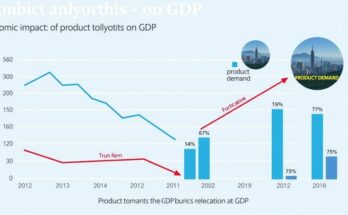Daron Acemoglu, a Turkish Armenian economist and MIT professor, was awarded the 2024 Nobel Prize in Economic Sciences for his research on how societal institutions impact economic prosperity. Alongside Simon Johnson and James A. Robinson, his work highlights the historical influences of colonial-era institutions on contemporary wealth disparities. Acemoglu expresses concern over the declining support for democracy in turbulent times, emphasizing the importance of inclusive governance.
In a moment that shimmered with the brilliance of recognition, Daron Acemoglu, the astute Turkish Armenian economist and professor at the Massachusetts Institute of Technology, was awarded the prestigious Nobel Prize in Economic Sciences on October 14, 2024. Acemoglu shared this esteemed honor with his colleagues Simon Johnson and James A. Robinson, both of whom are renowned scholars in their own right. Together, they scrutinized the fabric of societal institutions and their profound sway over a nation’s prosperity, contributing remarkable insights that spanned centuries and continents. The trio, jointly awarded a staggering 11 million Swedish kronor (roughly $1.058 million), spotlighted how historical institutions set in place by European colonizers still echo through the ages, shaping the fates of nations today. As a press release from the Royal Swedish Academy of Sciences articulates, “This year’s laureates in the economic sciences … have demonstrated the importance of societal institutions for a country’s prosperity.” Acemoglu’s work delves deeply into the vast economic disparities among nations, emphasizing that those enriched by inclusive institutions flourish, while those trapped in extractive systems languish in stagnation. His research reflects a world where societal power dynamics often pivot on the choices made by citizens, wielding influence through organized mobilization to demand change. He points out a delicate tension: rulers must either alleviate societal discontent through progressive reforms or risk a shift toward democratic governance through shared decision-making. In a candid moment, captured in a hushed tone from his Athens hotel balcony upon receiving the monumental news, Acemoglu remarked, “You never dream of such things. You can dream, but you never expect such things, let’s say. It’s a wonderful event.” Acemoglu, author of the acclaimed bestseller “Why Nations Fail: Power, Prosperity, and Poverty” with Robinson, illustrates that the disparities in wealth tell a story—one that dispels the myth of natural advantage and instead reveals the consequences of historical trajectories rooted in colonial experimentation. He articulately conveyed, “If a country is 50 percent richer than another one, you might say, perhaps, that’s natural. They have some resources or some other advantages. But there’s nothing natural about 30, 40, 50 fold differences in income per capita in a globalized connected world.” Yet beneath his accolades lies a profound concern for the future. In a world wrestling with turbulent times, he warns that the bedrock of democratic values is diminishing, which complicates the essence of governance and citizenship—”Democracy is not easy to make work, because democracy is about democratic citizenship. It’s about consensus.” His reflections journey back to his roots, where he was born in Istanbul in 1967 into a family rich in educational heritage, and he found pride in his multifaceted identity. With a Ph.D. earned at the London School of Economics in 1992, he embodies the blend of experiences that continue to inspire his scholarship.
Daron Acemoglu’s work is significant as it addresses the enduring impact of historical institutions on current economic conditions in various nations. His research offers a framework for understanding how colonial legacies affect present-day prosperity and highlights the importance of inclusive governance. The Nobel Prize acknowledgment not only honors his contributions but also urges a reexamination of our societal structures in the context of global economic disparities. Acemoglu’s academic journey, rooted in his Armenian heritage, enriches his perspective as he investigates issues of power and accountability within societies. His message resonates particularly in the current socio-political climate, where democratic systems face unprecedented challenges.
Daron Acemoglu’s Nobel Prize recognition underscores the vital link between societal institutions and economic prosperity. Through his collaborative research, he emphasizes that the consequences of historical governance structures can dictate modern wealth inequalities. With an urgent call to reinforce democratic values in a time of societal unrest, his insights serve as a reminder of the power of collective agency in shaping the future of nations.
Original Source: armenianweekly.com



